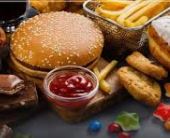Menopause is a biological phase in a woman’s life that brings about significant hormonal changes. One common issue experienced by many women during menopause is the accumulation of belly fat. Decreased estrogen levels and age-related metabolic changes can contribute to increased abdominal fat. While genetics and lifestyle factors play a role, diet also significantly manages menopausal belly fat. Here we will explore the foods that women in menopause should avoid to help maintain a healthy weight and reduce belly fat.
Processed Foods
Processed foods should be limited or eliminated from the diet, especially during menopause. These foods typically contain high levels of refined carbohydrates, unhealthy fats, and added sugars, all of which can contribute to weight gain and belly fat. Examples include sugary snacks, soda, fast food, and packaged meals. Instead, opt for whole, unprocessed foods like fruits, vegetables, lean proteins, and whole grains.
Sugary Beverages
Sugar-sweetened beverages such as energy drinks, soda, and sweetened juices are major contributors to weight gain and abdominal fat. They are high in empty calories and can lead to spikes in blood sugar levels, causing insulin resistance. Choose water, herbal tea, or unsweetened beverages instead. If you crave flavor, infuse your water with fresh fruits or herbs.
Trans Fats
Trans fats are artificially created fats found in many processed and fried foods. They contribute to weight gain and increase the risk of heart disease and inflammation. Avoid foods such as fried snacks, commercially baked goods, and margarine. Instead, choose healthier fats like avocados, nuts, seeds, and olive oil.
High-Sodium Foods
Foods high in sodium can induce water retention, bloating, and increased belly fat. Processed meats, canned soups, fast food, and certain condiments are often loaded with sodium. Read food labels carefully and choose low-sodium alternatives. Incorporate fresh herbs, spices, and lemon juice to enhance flavor without excessive salt.
Alcohol
While mild alcohol consumption may have some health benefits, excessive intake can lead to weight gain, especially around the abdominal area. Alcohol is very high in calories and can disrupt hormone balance, negatively affecting metabolism. Limit alcohol consumption and choose healthier alternatives like infused water or herbal tea.
White Bread and Pasta
Refined grains, such as white bread and pasta, can induce rapid spikes in blood sugar levels, leading to increased fat storage. They also lack essential nutrients and fiber. Instead, choose whole grains like quinoa, brown rice, and whole wheat bread, which provide more nutrients and have a lower impact on blood sugar levels.
High-Fat Dairy Products
Full-fat dairy products contain saturated fats linked to increased belly fat and weight gain. Opt for low-fat or non-fat dairy options like skim milk, Greek yogurt, or cottage cheese. Alternatively, consider plant-based milk alternatives such as almond milk or soy milk.
High-Carb Snacks
Snacking on high-carb, processed foods can lead to weight gain and abdominal fat accumulation. Foods like chips, cookies, and crackers are often high in calories and lack nutritional value. Instead, choose healthier options such as fresh fruits, vegetables with hummus, or nuts and seeds.
Conclusion
While menopause can challenge managing belly fat, making wise dietary choices can significantly impact your overall health and weight management goals. Avoiding processed foods, sugary beverages, trans fats, high-sodium foods, alcohol, refined grains, high-fat dairy products, and high-carb snacks can help reduce menopausal belly fat. Remember to focus on nutrient-dense, whole foods that support overall health and well-being. A healthy, well-balanced diet, regular exercise, stress management, and sufficient sleep will also contribute to a successful menopause transition and a healthier you.







